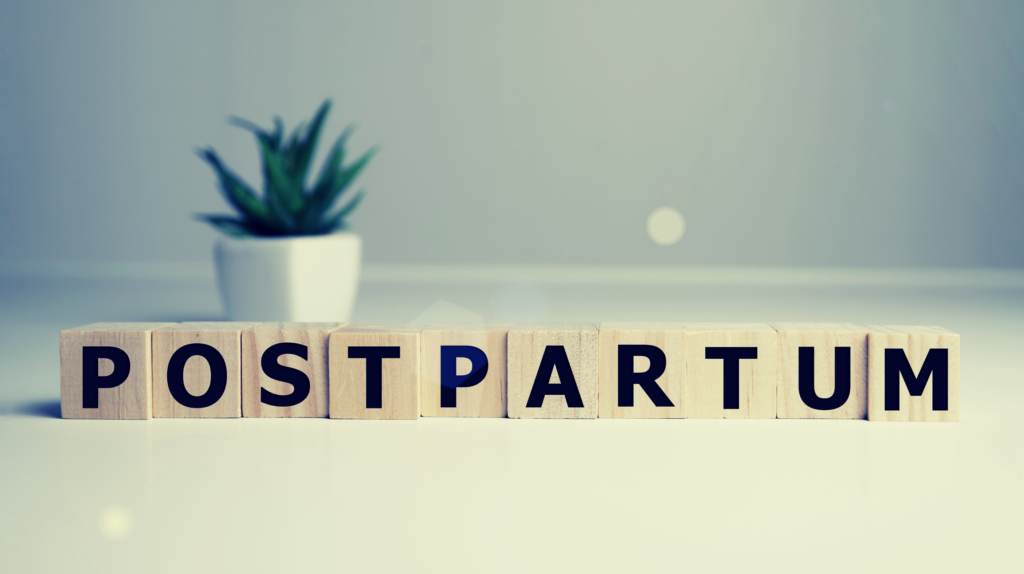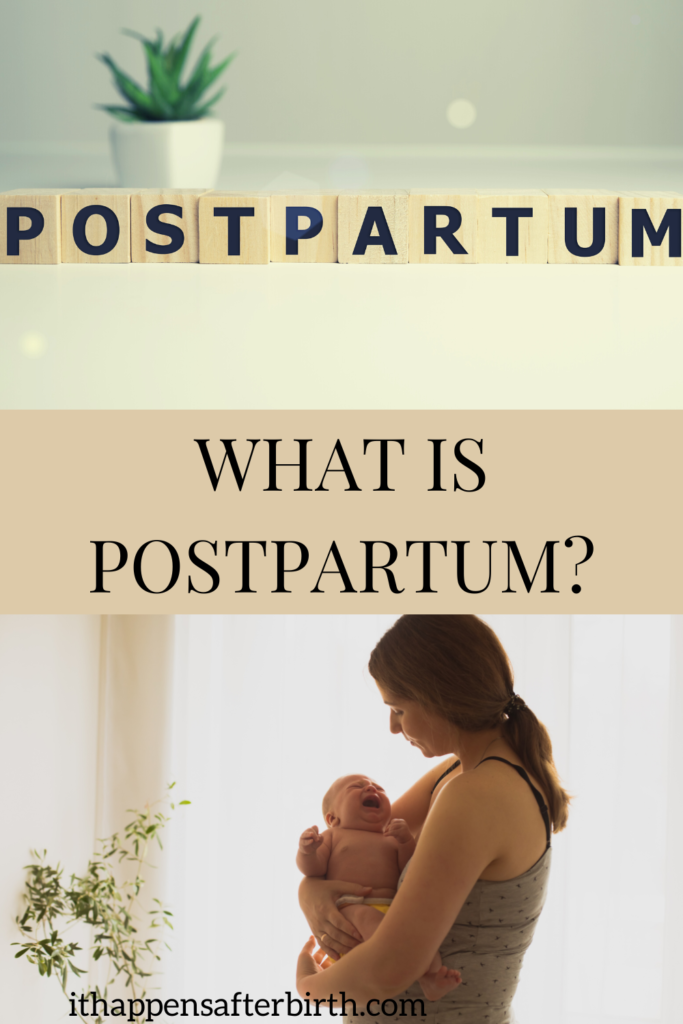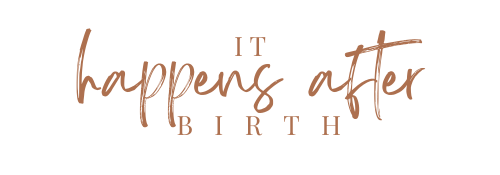What is postpartum?
In this post, we’ll talk about what postpartum is and why it isn’t the same as postpartum depression.

While you were pregnant, one of the words that may not have come up in a meaningful way is “postpartum”.
Or if it did come up, it was probably mentioned in a way that made it seem synonymous with depression.
“I had a little bit of postpartum.”
“She had a great birth, but got postpartum really bad.”
Actually, it doesn’t mean depression at all.
Postpartum is a Latin word which is defined as “After Birth“. In its simplest term, it’s the period of time after a person has a baby.
How long does it last?
The length of time that postpartum lasts is completely defined by each individual person going through it, as no two people heal or recover in the same way.
Your midwife, doctor, and many other people will probably tell you that it last six weeks. Six weeks is when you will have your last physical check-up, and your body is “supposed” to be finished healing by then. (Actually, the majority of birthing women are not completely recovered after 1 1/2 months!)
Another length of time you’ll hear thrown out there is the “4th trimester”, a more accurate term describing the first three months after birth. This is more in line with how your infant is developing and when he or she is ready to spend more time away from the safety of your arms.
Even three months may not be long enough. Recovery should be based on when you are feeling well again: physically, emotionally, and spiritually. For some that may be six weeks, and for others it may be six months, even six years.
So what is postpartum depression?
It’s depression that happens directly after birth, with symptoms showing up somewhere around the six-week mark or later. They can show up any time during the first year after having a baby.
And it isn’t just women who can get it- studies have shown that new dads are just as susceptible.
Now, depression is not the same as baby blues. Baby blues are feelings of sadness that happen to the majority of women, usually sometime in the first two weeks after birth. Most of the time they’re milder feelings of melancholy, and they resolve on their own. Depression does not.
Like all things that happen after birth, depression is never meant to be handled by yourself, and it absolutely does not make you a bad parent if you have it. It makes you a strong human being.
Wondering if you may have postpartum depression? Check out this questionnaire. Or check out my post about PMADs here.
This is an important difference
Postpartum and postpartum depression sound very similar in wording, though not in definition. So why even go through the trouble to make a distinction? Well, because every pregnant woman will go through postpartum- but not all will get postpartum depression. It may seem like a small distinction to make, but for the 20% of moms who do get it (and 10% of dads), it’s a very important one.
Postpartum, in and of itself, is the length of time it takes to heal after birthing your baby. It covers a variety of normal occurrences that happen after labor and birth, and it’s the end cycle of the childbearing year.
Postpartum depression is a mood disorder that develops during the postpartum period. It can last for months or years, even after your body is physically recovered.
I think that it’s important to remember the definitions in order to open up meaningful discussions on this phase of parenthood. Not everyone will experience postpartum the same way- one person won’t even experience postpartum the same way twice. Like birth, it is unique each time.
What did you think of the word postpartum the first time you heard it? Let me know in the comments!

